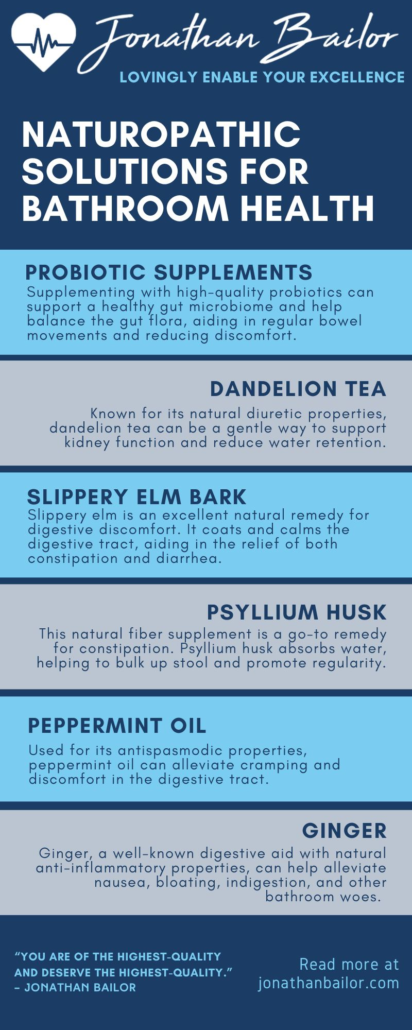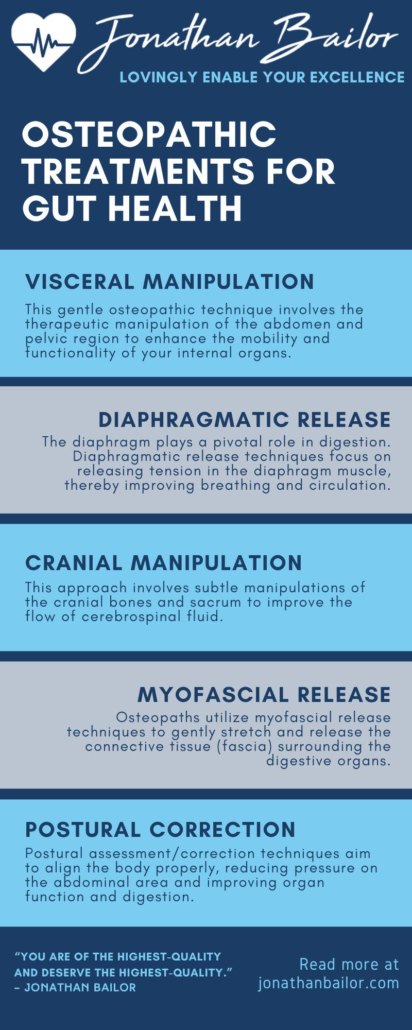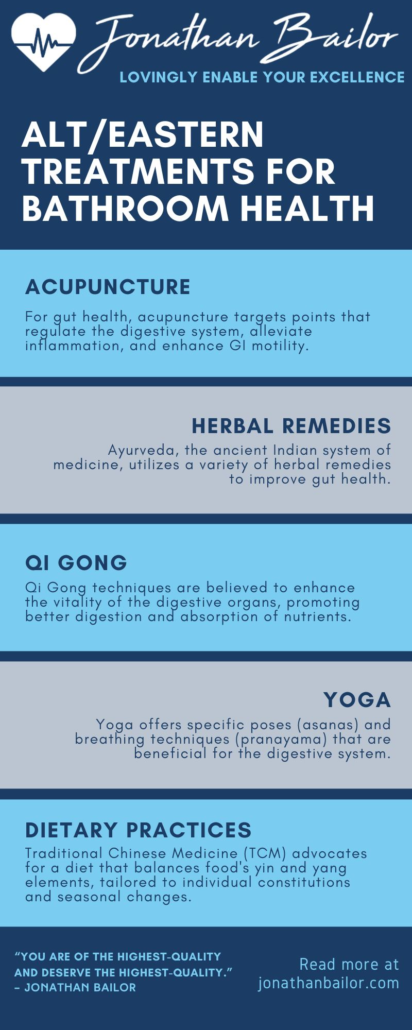21 Treatments for a Healthy Bathroom Experience
Embarking on a journey to enhance bathroom health is a pivotal aspect of a healthy body and overall wellness, especially as we navigate the later stages of life. This gut health guide with Jonathan Bailor is designed to illuminate a path toward a healthier, more comfortable bathroom experience, highlighting evidence-based treatments that are effective and easy to integrate into daily life. It’s about understanding and caring for your body in a way that respects its natural processes and needs.
Imagine a life where bathroom visits are no longer a source of discomfort or concern but a seamless and natural part of your day. This isn’t about quick fixes or complicated medical procedures but practical, evidence-based strategies that respect your body’s innate wisdom. These treatments, carefully selected for their efficacy and ease of use, enhance your bathroom experience, contributing to a sense of well-being and confidence.
Sharing this knowledge is not just about individual well-being; it’s about fostering a community of health and support. Whether discussing these tips with a friend or sharing them on social media, you contribute to a larger conversation about health and wellness. This guide is a testament to the power of informed, gentle care and an invitation to embrace a fulfilling and comfortable daily routine
Western Medicine Solutions for a Healthy Bathroom Experience
Exploring Western medicine’s arsenal reveals a variety of solutions designed to enhance bathroom health and comfort. These approaches, grounded in years of medical research and practice, offer effective remedies to common digestive concerns. From gentle laxatives to sophisticated prescription medications, the following list details the options available in allopathic medicine. These treatments are not only about addressing immediate discomforts but also about restoring and maintaining the natural rhythm of your body’s gastrointestinal tract.
1. High-Fiber Laxatives
For those struggling with constipation, high-fiber laxatives can be a gentle and effective solution. These products work by absorbing water into the stool, making it softer and easier to pass. They mimic the natural mechanism of dietary fiber, offering a more natural approach to alleviating constipation without the harshness of stimulant laxatives.
2. Antidiarrheal Medications
If you are experiencing acute episodes of diarrhea, you may find relief by taking over-the-counter antidiarrheal medications such as loperamide. They slow down the movement of the gut, allowing more water to be absorbed from the stool. This treatment is beneficial for managing temporary diarrhea and ensuring frequent bathroom visits don’t disrupt your daily activities.
3. Stool Softeners
Stool softeners, like docusate, are another option for managing constipation, especially for those who find it painful to pass hard stools. One way they function is by increasing the water absorption of the stool in the gut, resulting in a softer and more comfortable bowel movement. This can be particularly beneficial for individuals recovering from surgery or childbirth.
4. Probiotics
While typically associated with natural health, specific probiotic supplements have gained recognition in allopathic medicine for their role in maintaining gut health. Probiotics can help balance the gut flora, which is crucial for regular bowel movements and overall digestive health. They’re especially useful after a course of antibiotics, which can lead to poor gut health if good gut bacteria are not immediately replaced.
5. Prescription Medicines for Chronic Conditions
For chronic conditions like Irritable Bowel Syndrome (IBS) or Inflammatory Bowel Disease (IBD), doctors may prescribe medications to manage symptoms. These can include antispasmodics to reduce cramping, immunosuppressants for IBD, or specific IBS medications like lubiprostone, which increases fluid secretion in the intestine to aid bowel movements. These treatments are tailored to each individual’s condition, providing targeted relief and improved quality of life.

Feeling Better Is Priceless, That's Why We Don't Put A Price On It!
“It’s Like A Free and Medically Valid Version of Noom and Weight Watchers Online”
~ Dr. Doctor Matthew Oleshiak, MD
Click the 'LEARN MORE' button below for free lifetime access to the fast fix program developed by Jonathan and top Ivy League Medical Doctors
LEARN MOREP.S. It's not a free trial. It's not part of the program for free. The entire program is free, forever, for real! No credit card needed.
Introduction to Naturopathic Solutions for Bathroom Health
Stepping into the realm of naturopathic solutions opens a world of gentle yet effective approaches to enhancing bathroom health. This holistic perspective focuses on harnessing the healing powers of nature, emphasizing treatments that work in harmony with the body’s natural processes. From herbal remedies to lifestyle adjustments, naturopathic solutions offer a way to address bathroom health concerns while promoting overall well-being. These methods, rooted in traditional wisdom and supported by modern understanding, provide a balanced approach to digestive health.
1. Probiotic Supplements
Probiotics, the beneficial bacteria that inhabit our gut, play a crucial role in digestive health. Supplementing with high-quality probiotics can support a healthy gut microbiome and help balance the gut flora, aiding in regular bowel movements and reducing discomfort. These supplements are particularly beneficial after a course of antibiotics or when diet alone isn’t enough to maintain a healthy gut ecosystem.
2. Dandelion Tea
Known for its natural diuretic properties, dandelion tea can be a gentle way to support kidney function and reduce water retention. Its mild laxative effect also makes it helpful in promoting regular bowel movements, making it a popular choice in naturopathic circles for maintaining bathroom health.
3. Slippery Elm Bark
With its soothing mucilage, Slippery elm is an excellent natural remedy for digestive discomfort. It coats and calms the digestive tract, aiding in the relief of both constipation and diarrhea. Its gentle action makes it suitable for long-term use.
4. Psyllium Husk
This natural fiber supplement is a go-to remedy for constipation in naturopathy. Psyllium husk absorbs water, helping to bulk up stool and promote regularity. Drinking plenty of water when taking psyllium is important to ensure proper hydration and efficacy.
5. Peppermint Oil
Used for its antispasmodic properties, peppermint oil can alleviate cramping and discomfort in the digestive tract. It’s often recommended in cases of IBS and other functional bowel disorders. Peppermint oil capsules are particularly effective as they deliver the oil directly to the intestines.
6. Ginger
Ginger, a well-known digestive aid, can help alleviate nausea, bloating, and indigestion. Its natural anti-inflammatory properties make it a beneficial addition to a diet focused on bathroom health. Ginger tea or fresh ginger in meals can both be effective.

Osteopathic Approaches for Enhanced Gut Health
In our journey towards optimal well-being, understanding the intricate connection between our body’s structure and function is crucial, especially when it comes to gut health. With its holistic and hands-on approach, osteopathic medicine offers unique strategies to support and improve our digestive system’s health. Here are some osteopathic solutions that can be beneficial for maintaining a healthy gut:
1. Visceral Manipulation
This gentle osteopathic technique involves the therapeutic manipulation of the abdomen and pelvic region to enhance the mobility and functionality of your internal organs. By improving the movement and blood flow to these areas, visceral manipulation can reduce bloating and constipation, leading to improved gut health.
2. Diaphragmatic Release
The diaphragm plays a pivotal role in digestion. Osteopathic diaphragmatic release techniques focus on releasing tension in the diaphragm muscle, thereby improving breathing and circulation. This enhancement in diaphragmatic function can contribute to better digestive processes and alleviate issues like acid reflux and heartburn.
3. Osteopathic Cranial Manipulative Medicine
This approach involves subtle manipulations of the cranial bones and sacrum to improve the flow of cerebrospinal fluid. Balancing this fluid aids in the optimal functioning of the nervous system, which in turn can positively influence the gut-brain axis, enhancing digestive health and reducing stress-related gastrointestinal symptoms.
4. Myofascial Release in the Abdominal Region
Osteopaths utilize myofascial release techniques to gently stretch and release the connective tissue (fascia) surrounding the digestive organs. This method can alleviate fascial restrictions and enhance organ function, leading to better gut motility and reduced discomfort from conditions like irritable bowel syndrome (IBS).
5. Osteopathic Postural Assessment and Correction
Poor posture can impact gut health by compressing abdominal organs and impeding their function. Osteopathic postural assessment and correction techniques aim to align the body properly, thereby reducing pressure on the abdominal area and improving organ function and digestion.

Eastern Wisdom for Gut Health: Alternative Medicine Solutions
Eastern and alternative medicine recognizes the role that gut health plays in digestive and overall health. Thus, they offer a treasure trove of methods to nurture gut health. These ancient practices focus on balancing the body’s energy and optimizing its natural healing abilities. Here are some alternative and Eastern medicine solutions that have been embraced for their effectiveness in improving gut health:
1. Acupuncture for Digestive Balance
Acupuncture, a cornerstone of traditional Chinese medicine, involves the insertion of fine needles at specific points to balance the body’s energy or Qi. For gut health, acupuncture targets points that regulate the digestive system, alleviate inflammation, and enhance gastrointestinal motility. This method is known to be particularly effective in managing symptoms of conditions like irritable bowel syndrome and chronic constipation.
2. Herbal Remedies in Ayurveda
Ayurveda, the ancient Indian system of medicine, utilizes a variety of herbal remedies to improve gut health. Herbs such as Triphala, a blend of three fruits, are widely used for their detoxifying properties and their ability to support regular bowel movements. Similarly, ginger and licorice root are praised for their anti-inflammatory effects and ability to soothe the digestive tract.
3. Qi Gong for Energetic Harmony
Qi Gong, a practice involving gentle movements, meditation, and controlled breathing, is used to harmonize the body’s energy flow. Its techniques are believed to enhance the vitality of the digestive organs, promoting better digestion and absorption of nutrients. Regular Qi Gong practice can also help reduce stress, which is often a significant contributor to digestive disorders.
4. Yoga for Gut Health
Yoga offers specific poses (asanas) and breathing techniques (pranayama) that are beneficial for the digestive system. Poses like Pawanmuktasana (Wind-Relieving Pose) and Vajrasana (Thunderbolt Pose) are known for stimulating digestion and relieving gas. In addition, yoga’s emphasis on mindfulness and stress reduction can positively impact gut health by lowering the body’s stress response, which is often linked to gastrointestinal issues.
5. Dietary Practices in Traditional Chinese Medicine
Traditional Chinese Medicine (TCM) advocates for a diet that balances food’s yin and yang elements, tailored to individual constitutions and seasonal changes. Foods are chosen for their energy properties and ability to strengthen the spleen and stomach, the organs responsible for digestion and nutrient absorption in TCM. Incorporating warm, cooked foods and avoiding overly spicy, cold, or raw foods can be particularly beneficial for maintaining a healthy digestive system.

Essential FAQ on Gut Health
Gut health is a cornerstone of overall wellness, yet it’s often shrouded in mystery and misinformation. To shed light on this vital topic, here are five frequently asked questions about gut health, each answered with clarity and factual accuracy.
Q1: What role does gut health play in overall well-being?
The gut is often called the body’s “second brain” due to its significant impact on overall health. A healthy gut contributes to a robust immune system effective digestion, and may even influence mood and mental health. The gut microbiome, a complex community of microorganisms in the digestive system, plays a crucial role in nutrient absorption, the production of vitamins, and protection against pathogens. (The gut lining also protects overall health by keeping food particles from seeping into the bloodstream.)Maintaining a balanced gut microbiome is key to physical and mental well-being.
Q2: Can changes in diet improve gut health?
Absolutely. Diet is one of the most influential factors in shaping gut health. A fiber-rich diet of fruits, vegetables, and legumes encourages a diverse and healthy microbiome. Fermented foods like yogurt, kefir, and kimchi provide probiotics, beneficial bacteria that support gut health. If you experience bloating and other troubling digestive symptoms after eating yogurt, you may have lactose intolerance, where the small intestine does not have enough digestive enzymes to digest milk sugar (lactase). Conversely, a diet high in processed foods and sugars can disrupt the microbial balance, leading to digestive and other health problems.
Q3: How do probiotics and prebiotics contribute to gut health?
Probiotics are live beneficial bacteria that can replenish and balance the gut microbiome, improving digestive function and immune response. Prebiotics, on the other hand, are types of dietary fiber that feed the healthy bacteria in the gut. Together, they create a synergistic effect, promoting a healthy gut environment, aiding digestion, and potentially preventing gastrointestinal disorders.
Q4: What are the common symptoms of an unhealthy gut?
An unhealthy gut can manifest in various ways, including chronic digestive issues such as bloating, gas, constipation, or diarrhea. It can also lead to more subtle signs like fatigue, headaches, skin irritations, or unexplained weight fluctuations. In some cases, a compromised gut can contribute to mood disorders, as the gut-brain connection plays a role in mental health.
Q5: Can stress affect gut health?
Stress has a profound impact on gut health. The gut and brain are directly connected through the enteric nervous system, and stress can trigger gut symptoms and alter gut microbiome composition. Practices like mindfulness, meditation, and yoga can help manage stress and, in turn, support gut health. Balancing stress is not only beneficial for mental well-being but also crucial for maintaining a healthy digestive system.
Understanding gut health is a step towards empowered well-being. By nurturing our gut through diet, managing stress, and recognizing its pivotal role in our overall health, we can support this vital aspect of our body’s ecosystem.
Embracing Gut Health: A Concluding Note
As we conclude our exploration of gut health, it’s evident that this aspect of our well-being is a profound pillar of overall health. From osteopathic methods to Eastern wisdom, the solutions we’ve discovered offer diverse pathways to nurture our digestive systems. If this journey through gut health has enlightened or benefited you, consider sharing these insights with friends and family. Spread the knowledge across social media platforms and via email, inviting others to join this vital conversation. Together, let’s cultivate a community dedicated to holistic health, starting with the foundational element of a balanced and thriving gut.
Feeling Better Is Priceless, That's Why We Don't Put A Price On It!
“It’s Like A Free and Medically Valid Version of Noom and Weight Watchers Online”
~ Dr. Doctor Matthew Oleshiak, MD
Click the 'LEARN MORE' button below for free lifetime access to the fast fix program developed by Jonathan and top Ivy League Medical Doctors
LEARN MOREP.S. It's not a free trial. It's not part of the program for free. The entire program is free, forever, for real! No credit card needed.




